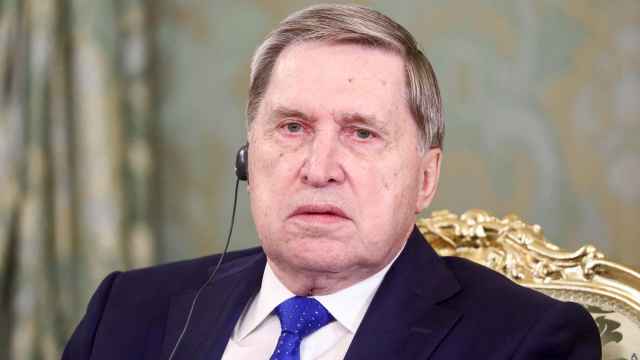The Finance Ministry has decided not to push forward a proposal to increase a tax on crude oil production, Deputy Minister Sergei Shatalov said, after oil companies protested that higher taxes would lead to a drop in output.
He also said the ministry dropped its proposals to speed up the increase of export duty on fuel oil and that the government had agreed to a smaller increase in excise tax than the ministry wanted. Taxes on the energy industry already account for around a half of the state purse.
"We decided to drop [mineral extraction tax] and fuel oil [proposals] ourselves, thinking that we could do with excise tax rises," Shatalov said late on Monday.
Last month the ministry said it wanted to increase energy taxes, including excise fees, to pay for infrastructure upgrades needed to sustain long-term growth, although later it signaled it might backtrack from the proposals.
Its proposal caused outrage among the oil companies, who said the resulting tax burden would hit their future production, which would then lead to a drop in state revenues.
Tweaks to the tax system in recent years have reduced the marginal tax rate on each barrel of crude exported to 82 percent from around 87 percent, although some experts say that is still too high to create an incentive to invest.
The Finance Ministry's move to speed up an excise tax rise on fuel was not approved by the government. The rise will be more gradual than the ministry had proposed, Shatalov said.
The excise tax for a low-grade Euro II fuel currently stands at 10,100 rubles ($320) per ton, while the fee for the higher grade of Euro V is 5,143 rubles.
Tweaks to the tax system in recent years have reduced the marginal tax rate on each barrel of crude exported to 82 percent from around 87 percent, although some experts say that is still too high to create an incentive to invest.
A Message from The Moscow Times:
Dear readers,
We are facing unprecedented challenges. Russia's Prosecutor General's Office has designated The Moscow Times as an "undesirable" organization, criminalizing our work and putting our staff at risk of prosecution. This follows our earlier unjust labeling as a "foreign agent."
These actions are direct attempts to silence independent journalism in Russia. The authorities claim our work "discredits the decisions of the Russian leadership." We see things differently: we strive to provide accurate, unbiased reporting on Russia.
We, the journalists of The Moscow Times, refuse to be silenced. But to continue our work, we need your help.
Your support, no matter how small, makes a world of difference. If you can, please support us monthly starting from just $2. It's quick to set up, and every contribution makes a significant impact.
By supporting The Moscow Times, you're defending open, independent journalism in the face of repression. Thank you for standing with us.
Remind me later.





